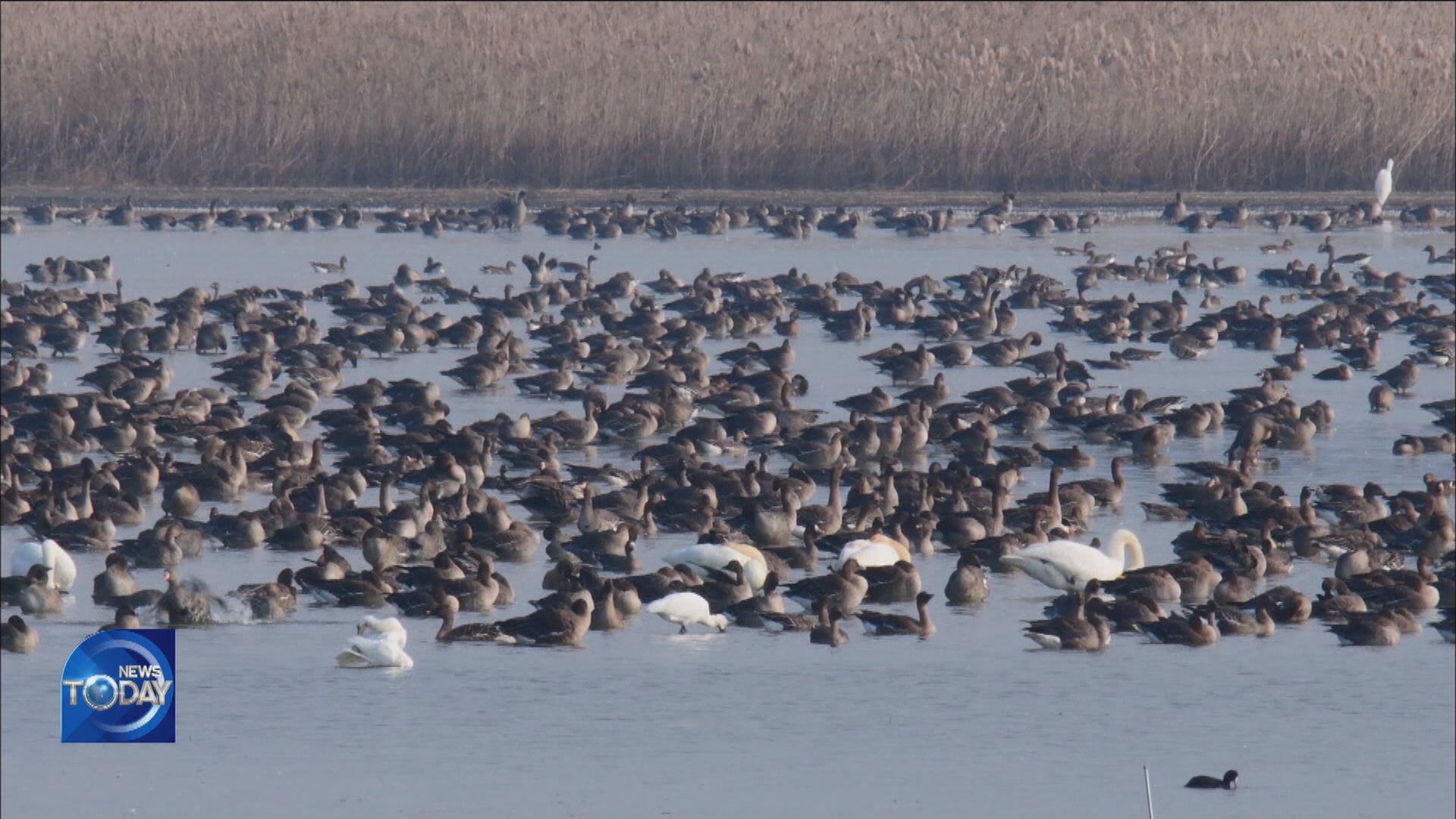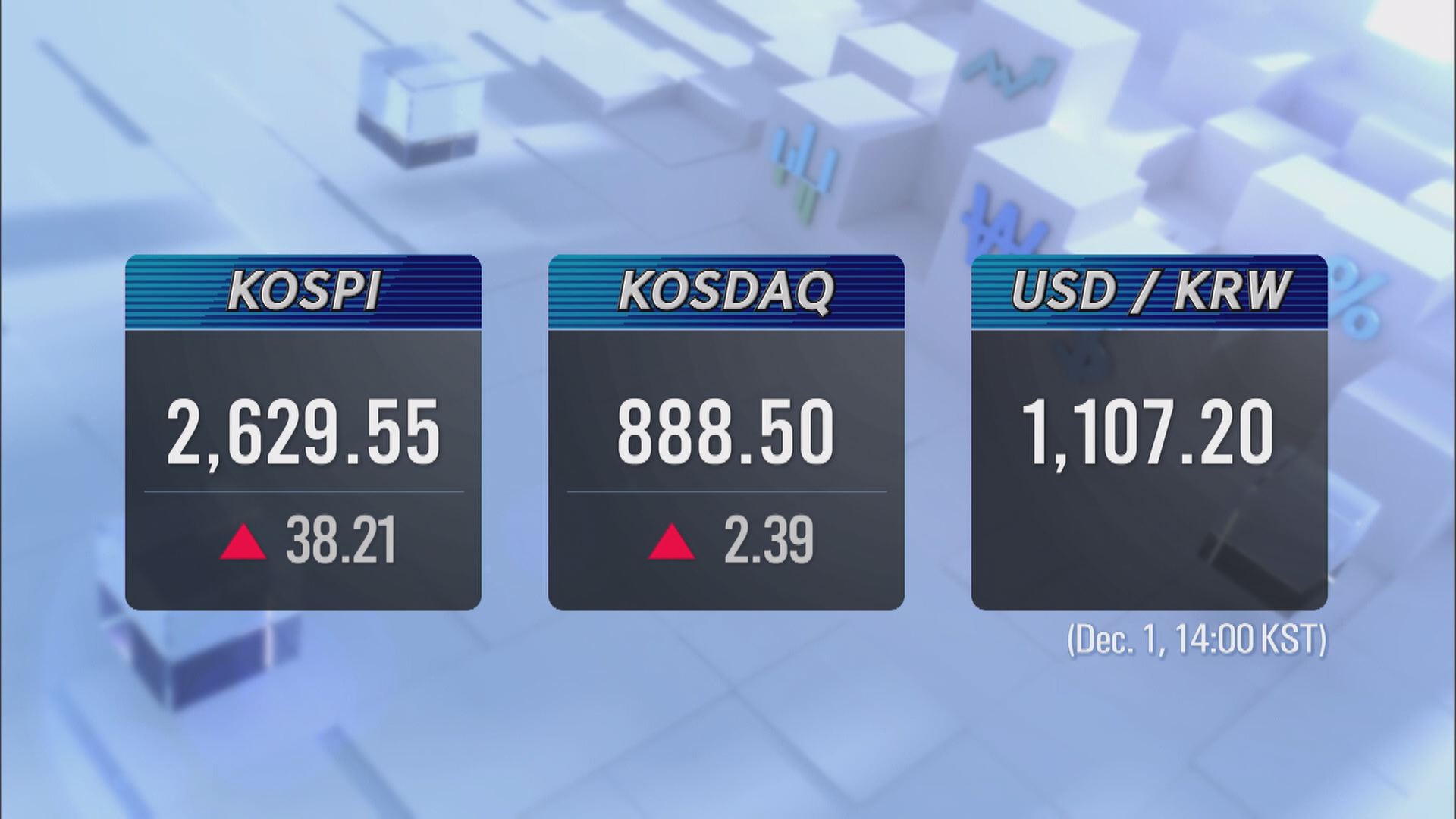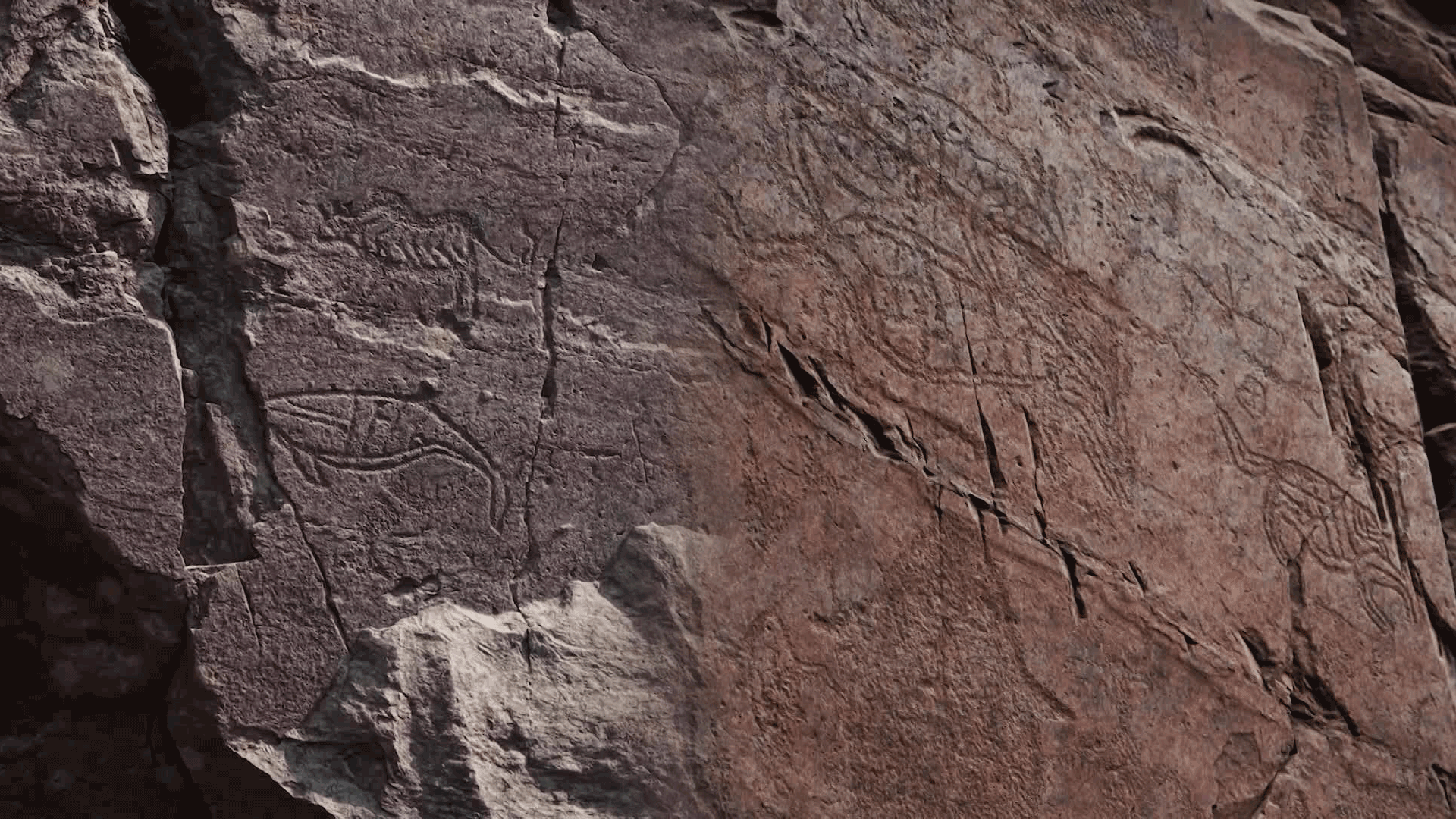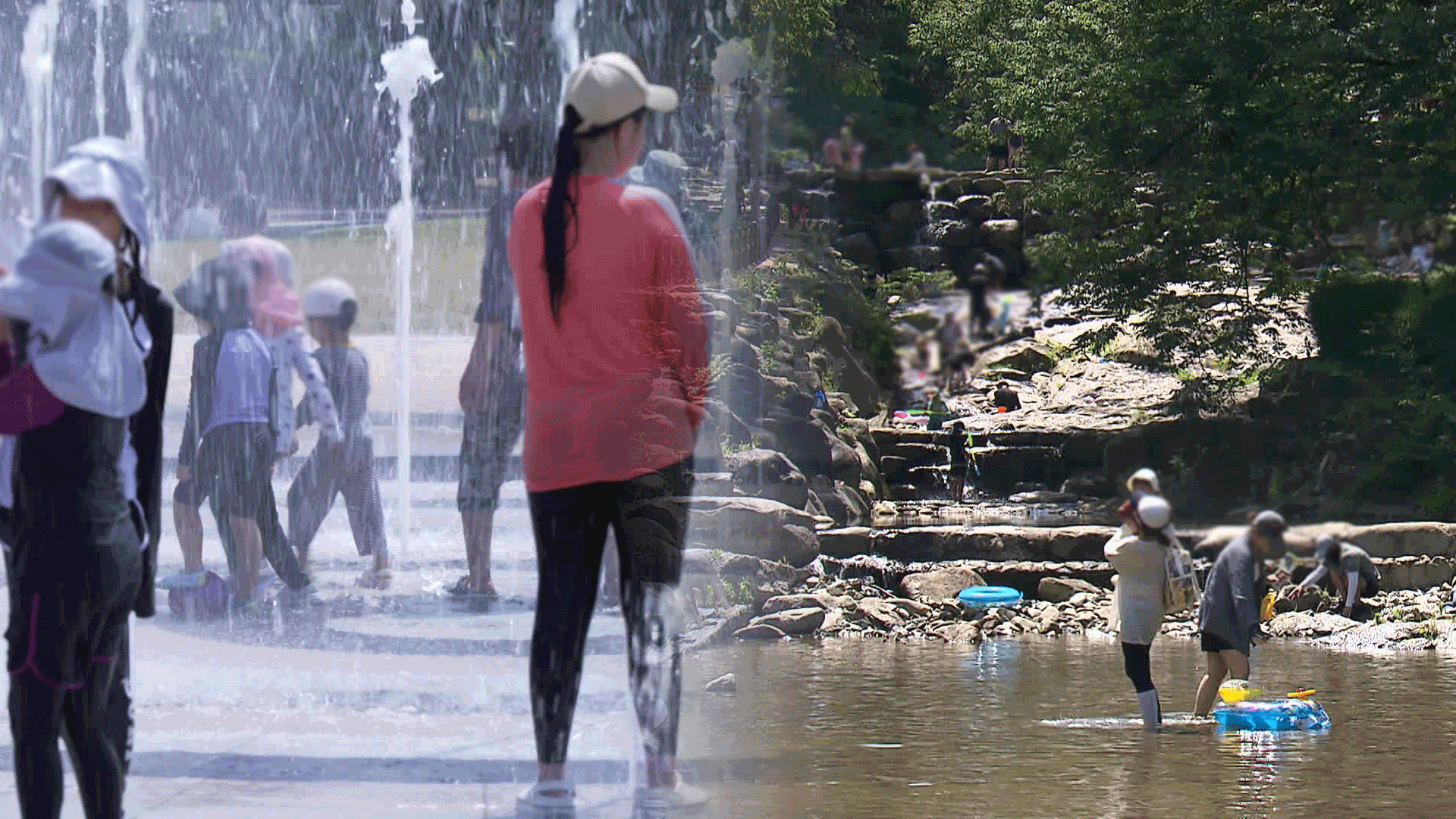EFFORTS TO PROTECT SHIWHA LAKE
입력 2020.12.01 (15:09)
수정 2020.12.01 (16:45)
읽어주기 기능은 크롬기반의
브라우저에서만 사용하실 수 있습니다.
[Anchor Lead]
Shihwa Lake, once notorious for environmental pollution, has emerged as a major stopover for migratory birds. This year, it saw the most number of endangered mute swans in 20 years. However, efforts to designate the lake a protected wetland have produced no results so far.
[Pkg]
The lake is swarming with birds. They swim busily looking for prey. Some group together to take a nap. From bean geese and spoonbills to coots and all kinds of ducks -- various bird species have visited Lake Shihwa this year. Some of them are mute swans, which have a black spot between their eyes and beak.
[Soundbite] CHOI JONG-IN(ACTIVIST) : "Before the lake was blocked, there were many small birds there. But nowadays it's visited by larger birds. It means there are many aquatic plants and freshwater shrimp in the lake now."
Some 82,000 birds of 75 species have been spotted in the area. The number of mute swans visiting Shihwa Lake has been on the rise in recent years. This year 39 mute swans were found in the area, the most since 1997. The lake used to be known as "the lake of death" because of rotten water that formed there after the inflow of seawater was blocked. But after the flow was restored, it managed to recover at an incredible pace.
[Soundbite] LEE WOO-SHIN(PROF. SEOUL NATIONAL UNIVERSITY) : "When marine and fresh water are mixed, brackish water is formed. It is rich in flora and fauna. Nature has recovered with time (as human trespassing was blocked)."
Shihwa wetland plays an important role on the western coast, which is visited by scores of migratory birds every year. Efforts to designate it a Ramsar wetland began in 2014, but no results have been produced so far, because the designation is only possible when the land development project is over.
[Soundbite] CHOI JONG-IN(ACTIVIST) : "The only decision reached so far is to continue development. You can't build a house without land. What living things need is land designated as a protected area, not their designation as natural assets after their extinction."
The Shihwa land reclamation project is scheduled to end in 2024, but it remains to be seen if this paradise of migratory birds will still be around after that.
Shihwa Lake, once notorious for environmental pollution, has emerged as a major stopover for migratory birds. This year, it saw the most number of endangered mute swans in 20 years. However, efforts to designate the lake a protected wetland have produced no results so far.
[Pkg]
The lake is swarming with birds. They swim busily looking for prey. Some group together to take a nap. From bean geese and spoonbills to coots and all kinds of ducks -- various bird species have visited Lake Shihwa this year. Some of them are mute swans, which have a black spot between their eyes and beak.
[Soundbite] CHOI JONG-IN(ACTIVIST) : "Before the lake was blocked, there were many small birds there. But nowadays it's visited by larger birds. It means there are many aquatic plants and freshwater shrimp in the lake now."
Some 82,000 birds of 75 species have been spotted in the area. The number of mute swans visiting Shihwa Lake has been on the rise in recent years. This year 39 mute swans were found in the area, the most since 1997. The lake used to be known as "the lake of death" because of rotten water that formed there after the inflow of seawater was blocked. But after the flow was restored, it managed to recover at an incredible pace.
[Soundbite] LEE WOO-SHIN(PROF. SEOUL NATIONAL UNIVERSITY) : "When marine and fresh water are mixed, brackish water is formed. It is rich in flora and fauna. Nature has recovered with time (as human trespassing was blocked)."
Shihwa wetland plays an important role on the western coast, which is visited by scores of migratory birds every year. Efforts to designate it a Ramsar wetland began in 2014, but no results have been produced so far, because the designation is only possible when the land development project is over.
[Soundbite] CHOI JONG-IN(ACTIVIST) : "The only decision reached so far is to continue development. You can't build a house without land. What living things need is land designated as a protected area, not their designation as natural assets after their extinction."
The Shihwa land reclamation project is scheduled to end in 2024, but it remains to be seen if this paradise of migratory birds will still be around after that.
■ 제보하기
▷ 카카오톡 : 'KBS제보' 검색, 채널 추가
▷ 전화 : 02-781-1234, 4444
▷ 이메일 : kbs1234@kbs.co.kr
▷ 유튜브, 네이버, 카카오에서도 KBS뉴스를 구독해주세요!
- EFFORTS TO PROTECT SHIWHA LAKE
-
- 입력 2020-12-01 15:09:31
- 수정2020-12-01 16:45:19

[Anchor Lead]
Shihwa Lake, once notorious for environmental pollution, has emerged as a major stopover for migratory birds. This year, it saw the most number of endangered mute swans in 20 years. However, efforts to designate the lake a protected wetland have produced no results so far.
[Pkg]
The lake is swarming with birds. They swim busily looking for prey. Some group together to take a nap. From bean geese and spoonbills to coots and all kinds of ducks -- various bird species have visited Lake Shihwa this year. Some of them are mute swans, which have a black spot between their eyes and beak.
[Soundbite] CHOI JONG-IN(ACTIVIST) : "Before the lake was blocked, there were many small birds there. But nowadays it's visited by larger birds. It means there are many aquatic plants and freshwater shrimp in the lake now."
Some 82,000 birds of 75 species have been spotted in the area. The number of mute swans visiting Shihwa Lake has been on the rise in recent years. This year 39 mute swans were found in the area, the most since 1997. The lake used to be known as "the lake of death" because of rotten water that formed there after the inflow of seawater was blocked. But after the flow was restored, it managed to recover at an incredible pace.
[Soundbite] LEE WOO-SHIN(PROF. SEOUL NATIONAL UNIVERSITY) : "When marine and fresh water are mixed, brackish water is formed. It is rich in flora and fauna. Nature has recovered with time (as human trespassing was blocked)."
Shihwa wetland plays an important role on the western coast, which is visited by scores of migratory birds every year. Efforts to designate it a Ramsar wetland began in 2014, but no results have been produced so far, because the designation is only possible when the land development project is over.
[Soundbite] CHOI JONG-IN(ACTIVIST) : "The only decision reached so far is to continue development. You can't build a house without land. What living things need is land designated as a protected area, not their designation as natural assets after their extinction."
The Shihwa land reclamation project is scheduled to end in 2024, but it remains to be seen if this paradise of migratory birds will still be around after that.
Shihwa Lake, once notorious for environmental pollution, has emerged as a major stopover for migratory birds. This year, it saw the most number of endangered mute swans in 20 years. However, efforts to designate the lake a protected wetland have produced no results so far.
[Pkg]
The lake is swarming with birds. They swim busily looking for prey. Some group together to take a nap. From bean geese and spoonbills to coots and all kinds of ducks -- various bird species have visited Lake Shihwa this year. Some of them are mute swans, which have a black spot between their eyes and beak.
[Soundbite] CHOI JONG-IN(ACTIVIST) : "Before the lake was blocked, there were many small birds there. But nowadays it's visited by larger birds. It means there are many aquatic plants and freshwater shrimp in the lake now."
Some 82,000 birds of 75 species have been spotted in the area. The number of mute swans visiting Shihwa Lake has been on the rise in recent years. This year 39 mute swans were found in the area, the most since 1997. The lake used to be known as "the lake of death" because of rotten water that formed there after the inflow of seawater was blocked. But after the flow was restored, it managed to recover at an incredible pace.
[Soundbite] LEE WOO-SHIN(PROF. SEOUL NATIONAL UNIVERSITY) : "When marine and fresh water are mixed, brackish water is formed. It is rich in flora and fauna. Nature has recovered with time (as human trespassing was blocked)."
Shihwa wetland plays an important role on the western coast, which is visited by scores of migratory birds every year. Efforts to designate it a Ramsar wetland began in 2014, but no results have been produced so far, because the designation is only possible when the land development project is over.
[Soundbite] CHOI JONG-IN(ACTIVIST) : "The only decision reached so far is to continue development. You can't build a house without land. What living things need is land designated as a protected area, not their designation as natural assets after their extinction."
The Shihwa land reclamation project is scheduled to end in 2024, but it remains to be seen if this paradise of migratory birds will still be around after that.
이 기사가 좋으셨다면
-
좋아요
0
-
응원해요
0
-
후속 원해요
0

















이 기사에 대한 의견을 남겨주세요.